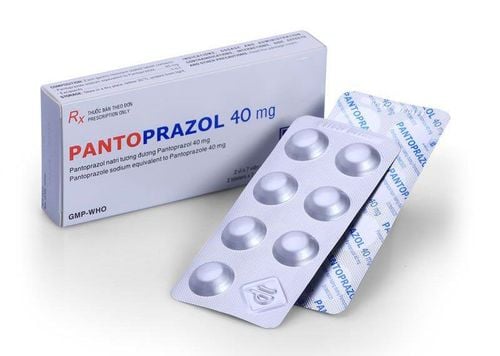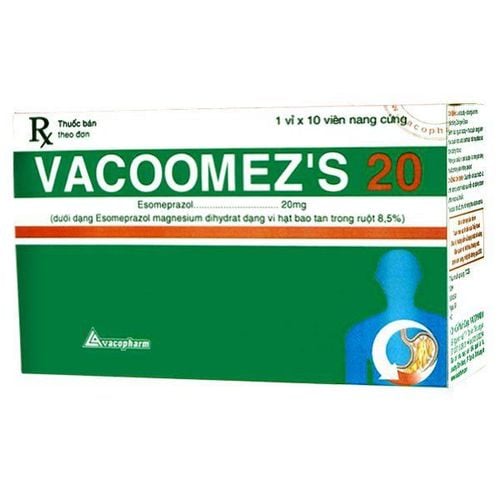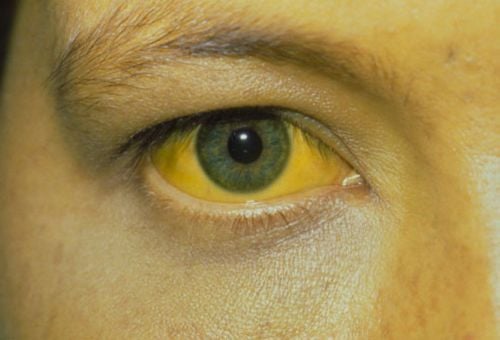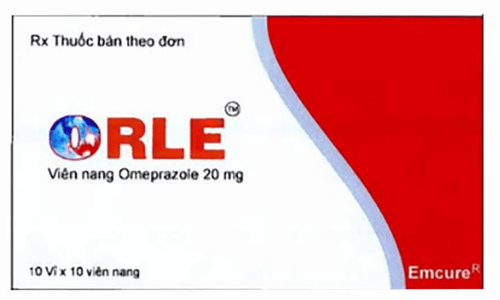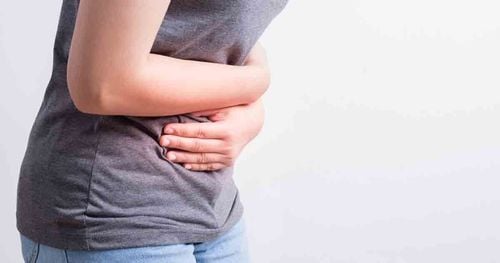This is an automatically translated article.
Esophageal ulcers are known to be one of the most common gastrointestinal diseases. Esophageal ulcers are caused by what? Read more about peptic ulcer disease through the article below.1. What is an esophageal ulcer?
In anatomy, the esophagus is a tube that connects the throat to the stomach. Esophageal ulcer is an ulcer that occurs in the esophagus, lesions often appear on the lining of the lower part of the esophagus, where the esophagus and stomach meet, making it difficult for patients to feel. Painful. Symptoms patients may experience when esophageal ulcers such as: Difficulty swallowing or pain when swallowing, pain behind the sternum, heartburn, chest pain, vomiting blood, ...
2. Are esophageal ulcers dangerous?
Esophageal ulcers when not detected early, treated properly and promptly can lead to many dangerous complications or even lead to the development of esophageal cancer threatening the patient's health.
Esophageal ulcers initially appear as only mild lesions, over time when the ulcers are attacked more severely and are not treated to reduce the inflammation, the ulcers will become worse. More importantly, the muscular layers of the esophagus gradually lose their supporting functions and are susceptible to attack by foreign cells. In the position of the lower tube of the esophagus, which is close to the stomach, the most complications will be encountered. Cancer cells, when attacking on the background of the oesophagus, have a stronger growth rate than usual, and the patient can be in danger of life.
3. Signs of injury and common causes
The most common symptom of drug-induced esophagitis usually occurs 24 to 48 hours after taking the drug, the patient will have pain behind the sternum and may spread to the back, pain increases when the patient eating or breathing deeply, sometimes accompanied by painful swallowing, difficult swallowing,... However, there are some cases that are only manifested by burning behind the sternum and abdominal pain above the navel, similar to the signs. of peptic ulcer disease and reflux esophagitis. There are patients who have pain behind the sternum with pain in the upper abdomen, heartburn, heartburn on the neck, so it is easy to be mistaken for stomach pain.
In fact, drug-induced esophagitis is not uncommon, but it is often overlooked because symptoms of abdominal pain or chest pain make patients think of other diseases such as stomach ulcers or heart disease. lung rather than pathology of this alimentary canal. The method used for the most accurate diagnosis is an upper gastrointestinal endoscopy of the patient through the mouth.
The most common cause of drug-induced esophagitis is that the patient has used the drug incorrectly:
Many patients have taken the drug with too little water, even some people take the medicine without water . Take the medicine while lying down or half lying down, take the medicine and then lie down immediately. The most common site of injury is the middle third of the esophagus because this is the narrowest part of the esophagus, making the pills pass through here, making the pills, especially the capsule form, will be damaged. softens very quickly when it encounters a humid environment and easily sticks to the wall of the esophagus, if the patient takes the medicine incorrectly, the medicine will not be able to push down the stomach. When the drug is stuck in the oesophagus, the concentration of the drug will disintegrate very high, causing direct toxicity on the wall of the esophagus, or some drugs, when dissolving, produce acidic or acidic substances. Alkali causes direct damage, burns on the wall of the esophagus and produces large ulcers up to 30 mm in diameter or with multiple ulcers at the same time. Common complications are ulcers that do not heal, scarring, narrowing of the esophagus, causing long-term difficulty swallowing.
Esophageal ulcers due to drug use are common in elderly subjects, due to physiological characteristics with age, the function of peristaltic contractions of the esophagus to push the drug down to the stomach will often be worse than for people. young. And often old people have a habit of lying down to take medicine or at night when they are ready to go to bed, they remember to forget a dose, so they rush to take the medicine and then go to bed to rest immediately. Esophageal ulcers are also more common in women than in men because drugs that can cause ulcers in the esophagus are often used in the treatment of gynecological and dermatological conditions.
4. Medicines that can easily cause esophageal ulcers if used in the wrong way
There are many drugs that cause esophagitis. However, the most common are drugs of the antibiotic group Doxycycline (drugs commonly used relatively commonly in regimens for the treatment of gynecological infections and acne), anti-inflammatory analgesics, drugs used in the treatment of osteoporosis of the bisphosphonate group,... even common antipyretic analgesics such as Paracetamol have also reported data that can cause esophageal ulcers.
In elderly patients, the age often suffers from bone and joint diseases, so they regularly use drugs of the bisphosphonate group, which is a drug that is very sensitive to the surface of the esophagus and stomach. thick. If this medicine stays in the lumen of the esophagus (due to the fact that the drug does not pass into the stomach when taken or it dissolves while still in the esophagus) it can cause irritation, inflammation, pain, and ulcers very quickly. . However, most cases of esophageal ulcers caused by medication can be cured in time and cause few serious complications for the patient.
Remedies:
For drug-induced esophagitis, the main treatment measures for esophagitis are temporary discontinuation of drugs suspected of causing esophageal ulcers and supportive treatment. by rehydrating electrolytes, preventing acid reflux, and relieving local pain with sucralfate or lidocaine gel.
During the time when the patient is suffering from esophageal ulcer, should use soft, cold food (ground soup, milk, porridge), drink plenty of warm water.
Most ulcerative lesions of the esophagus heal after 2 to 4 weeks of treatment. This disease is preventable. Taking the right medication is an important factor when it comes to medication, but it is rarely mentioned and given due attention. The drug should be taken with at least 150 ml of water, preferably 250 ml. Take the drug in a standing or sitting position, avoid lying down immediately after taking the medicine (for at least 30 minutes).
Please dial HOTLINE for more information or register for an appointment HERE. Download MyVinmec app to make appointments faster and to manage your bookings easily.




